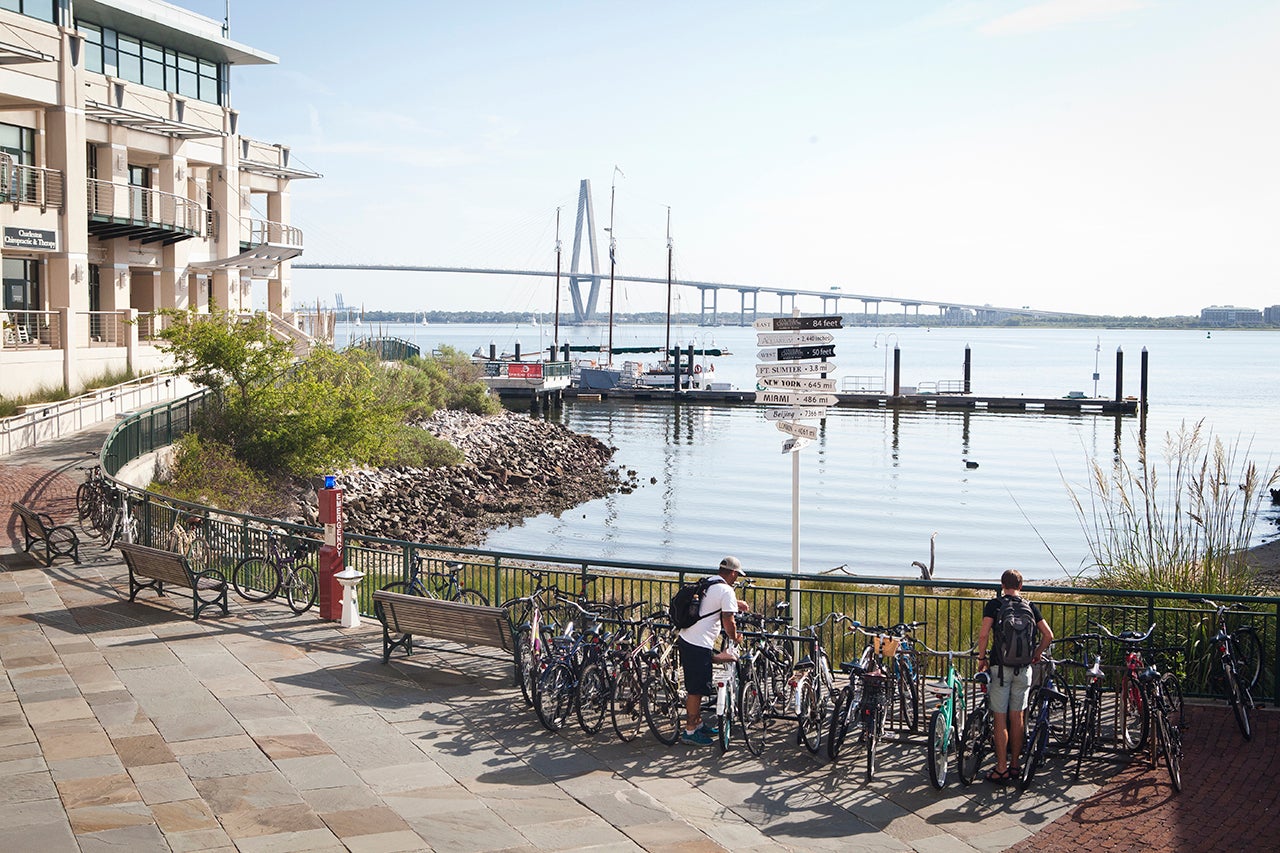The Department of Computer Science at the College of Charleston is taking experiential learning to the next level with a state-of-the-art facility where students can learn how to design the next big thing in tech.
Located at the College’s Harbor Walk campus, the new Computer Science Student Innovation Center includes a rapid prototyping makerspace, a virtual reality room, a conference room, a large collaboration space. Another defining feature is a “co-location space,” dubbed COMPASS (COMputing Professionals And Student Scholars), where employees from companies such as Boeing, Booz Allen Hamilton, Mercedes-Benz Vans and Benefitfocus will maintain a regular presence alongside students and professors. The center is open to all majors within the Department of Computer Science, including computer science, computer information systems, computing in the arts, data science and the College’s master’s in computer and information sciences.
Within the center, students have access to a variety of technologies such as a 3-D scanner, a resin 3-D printer, a filament 3-D printer, a Staubli robotic arm, robotics builder kits, drones and virtual reality headsets. Computer science department chair and professor Sebastian van Delden says funding for the space came from a special appropriation from the South Carolina General Assembly aimed at growing the region’s computing pipeline and supporting the local tech community.
“The space is mainly for students to experiment on their own, build up acumen on the technology, and then ‘graduate up’ to one of our research labs to work on more serious projects,” says van Delden, noting that the space will also help the department keep up with growing enrollment, which has risen 250 percent in the last seven years. “We have student workers on staff to help our students get started, but then the sky is the limit on where they can go from there.”
The hands-on learning the center offers is invaluable, says van Delden, and goes far beyond just gaining experience working with the different pieces of technology.
“Students also benefit from increased camaraderie and teamwork opportunities, extracurricular projects, and hands-on experience with various equipment and technologies that are not in the standard curricula in our department,” he says. “I’ve observed students coming together in grassroots efforts to help each other figure out the tech.”
And, through the COMPASS partnership with Boeing, Booz Allen Hamilton, Mercedes-Benz Vans and Benefitfocus, students get the opportunity to see real world applications of the technology as the companies set-up a permanent presence in the center.
“The companies have complete freedom to use their space however they choose,” says van Delden. “The intent is that this effort will lead to more collaborative projects between our students, faculty and industry professionals.”
Such collaborations are already coming to fruition with Booz Allen Hamilton developing plans to allow students to shadow scrum teams as they periodically work from the COMPASS site. During the spring 2018 semester computer science capstone students will work on projects inspired by the partner companies using the COMPASS space as their home base.
“COMPASS offers a level of collaboration which will drive value for both students and local businesses,” says Boeing IT Senior Manager Rob Papandrea. “Through ongoing co-location of businesses at the College of Charleston we will see partnerships expand and new ideas emerge.”
Bob Williams, chief technologist at Booz Allen Hamilton, adds, “In Charleston, we use our passion for innovation to connect with academia in ways that allow us to cultivate next generation tech talent, while also exploring and leveraging disruptive technologies for helping our clients execute against their missions.”
The future is wide open for how the center and the COMPASS initiative will evolve.
“Since this entire initiative is in its infancy, we honestly don’t know where exactly it will lead,” says van Delden, adding that the partner companies have the freedom to engage students in whatever ways make sense for their business models. “I’m excited to see how this initiative evolves!”
A launch party for the Computer Science Student Innovation Center will be held from 4 to 7 p.m. on Nov. 16, 2017. All faculty, staff, alumni and IT professionals may attend. Please RSVP for the event through the Alumni Association. For more information on the Computer Science Student Innovation Center, contact Sebastian van Delden at [email protected].






